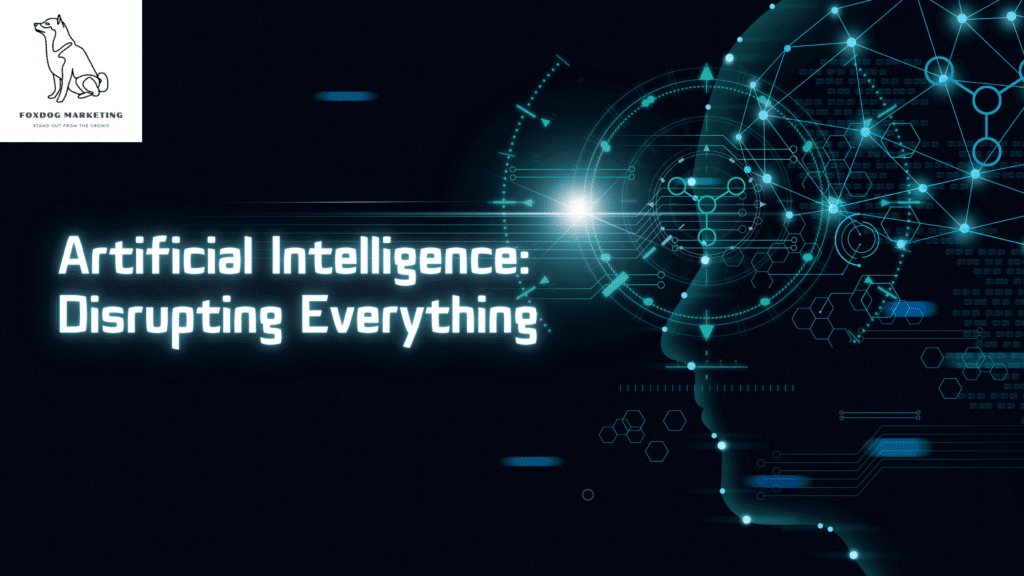Artificial Intelligence (AI) and Machine Learning (ML) are continuously expanding the limits of what’s achievable within the realm of marketing and sales. It’s relentless and there are no signs of it stopping anytime soon. With the ongoing revolutionary advancement of Generative AI (gen AI), we’re witnessing the penetration of open-source platforms into the forefront of sales, alongside increased investment by sales-tech entities in gen AI innovations. As the complexity and pace of digital-first business operations surge, these technologies are becoming indispensable tools.
Unavoidably, this transformation will affect how you function and how you interact with and cater to your clientele. In fact, it’s highly likely that this impact is already underway. Forward-looking leaders at the executive level are contemplating how to adapt to this novel landscape. In this context, we outline the opportunities and potential risks in the dynamic domain of marketing and sales, suggesting viable pathways forward.
Our research indicates that up to twenty percent of current functions within sales teams could potentially be automated.
Reshaping Marketing and Sales through AI
The influence of AI on marketing and sales across all sectors is poised for a disruptive wave. This is the outcome of changing consumer sentiments coupled with rapid technological advancements.
Omni-channel presence is now a foundational requirement. Engagement models are evolving across industries as contemporary customers demand seamless access to products and services anytime, anywhere. While traditional, remote, and self-service channels like face-to-face interactions, inside sales, and e-commerce still hold value, there’s a consistent trend towards online ordering and reordering.
Successful enterprises, those that annually increase their market share by at least ten percent, tend to leverage advanced sales technology, construct hybrid sales teams with diverse capabilities, tailor strategies for both third-party and company-owned marketplaces, excel in e-commerce across the entire sales funnel, and deliver hyper-personalized experiences by tailoring messages to individual decision-makers based on their historical behaviours and predictive behaviours.
Disruptive Shifts in Digitization and Automation
The landscape of AI technology is evolving at an impressive pace. Implementation is becoming simpler and more cost-effective, while the technology itself is gaining complexity and speed that surpasses human capabilities. Our analysis indicates that a significant portion of current sales functions, around twenty percent, could be automated. Venture capital investments in AI have grown substantially over the past decade, resulting in a wealth of usable data and accessible technology. The availability of vast amounts of data for foundational model training and the exponential growth in computation capacity are driving this transformation.
Implications of Gen AI for Marketing and Sales
The ascent of AI, particularly gen AI, has the potential to revolutionize marketing and sales across three major dimensions: customer experience (CX), growth, and productivity.
In the realm of CX, the potential for hyper-personalized content and offerings, rooted in individual customer behaviours, personas, and purchase histories, is substantial. AI can accelerate growth by providing sales teams with essential analytics and customer insights to capture demand more effectively. Additionally, AI can enhance sales performance by automating mundane tasks, allowing sales teams to invest more time in customer interactions while simultaneously reducing operational costs. Personalization is a linchpin across these applications. Combining AI with company-specific data and context enables detailed consumer insights, paving the way for personalized marketing and sales strategies. Leading B2B companies are transcending account-based marketing by placing a strong emphasis on hyper-personalization in their outreach efforts.
Bringing Gen AI into the Customer Journey Numerous Gen AI-specific use cases span the entirety of the customer journey, yielding substantial impacts:
-
Dynamic Audience Targeting and Segmentation: At the top of the funnel, gen AI surpasses traditional AI methods in identifying and targeting leads. Advanced algorithms use patterns in customer and market data to segment and target relevant audiences, resulting in efficient lead analysis and high-quality lead activation campaigns.
-
Marketing Strategy Optimization: Gen AI can optimize marketing strategies by conducting A/B testing on various elements such as page layouts, ad copy, and SEO tactics. Predictive analytics and data-driven recommendations enhance return on investment.
-
Continuous Sales Support: Gen AI extends beyond initial sales engagement, offering continuous support throughout the sales process. It generates personalized content and messaging, assists with follow-up emails, acts as a 24/7 virtual assistant, and provides negotiation guidance and predictive insights based on comprehensive analyses.
-
Post-Sale Engagement: After a customer signs on, gen AI continues to contribute by providing personalized training content, instant answers through chatbots, and real-time next-step recommendations based on customer behavior.
This ground breaking approach is reshaping marketing and sales dynamics, driving heightened effectiveness and customer engagement from the outset of the customer journey.
Optimism and Benefits Among Commercial Leaders
Our interactions with commercial leaders indicate a sense of cautious optimism toward gen AI’s potential use cases in marketing and sales. Across the board, all of our conversations lead us to believe they anticipate moderate to significant impact from suggested use cases, particularly in early customer journey stages such as lead identification, marketing optimization, and personalized outreach.
The top three use cases, all centred around prospecting and lead generation, are gaining substantial traction. This is unsurprising given the abundance of data on potential customers available for analysis and the historical challenge of scaling personalized initial outreach.
While various players are already deploying gen AI use cases, this is merely the tip of the iceberg. Our own research shows that a considerable 85% of commercial leaders expect to frequently utilize gen AI solutions over the next two years.
Strategic Priorities for Success Enterprises that excel are making strategic investments in advanced sales technology, developing hybrid teams, enabling hyper-personalization, and leveraging e-commerce and third-party marketplaces through analytics and AI. Among these successful companies, several commonalities stand out:
-
Clearly Defined AI Vision and Strategy: Successful companies have a well-defined AI vision and strategy guiding their actions.
-
Significant AI Investment: More than 25% of digital budgets are allocated to AI-related technologies.
-
Data Scientist Teams: Data scientists play a crucial role in running algorithms to inform pricing strategies and optimize marketing and sales tactics.
-
Futuristic Approach to Gen AI: Forward-looking companies are exploring and outlining simple gen AI use cases that align with their future goals.
These pioneers are already experiencing the transformative potential of gen AI, with AI investments translating to revenue and sales ROI uplifts.
Addressing Risks in Gen AI Implementation
While the business rationale for AI is compelling, the swift evolution of AI technology is accompanied by inherent risks. When questioned about the primary barriers to adopting AI technologies, commercial leaders consistently pointed to internal and external risks.
Issues ranging from intellectual property infringements to data privacy and security necessitate thoughtful strategies for mitigation and governance. The importance of human oversight and accountability is evident, potentially requiring the establishment of new roles and capabilities to fully leverage forthcoming opportunities.
Looking Forward: Long-Term AI Excellence
Beyond immediate measures, leaders should contemplate long-term investments in AI commercial excellence. Identifying which use cases are fundamental and which can differentiate a company’s market position will be crucial. Prioritization based on impact and feasibility is advisable.
The rapid evolution of the AI landscape means that today’s winners might not remain competitive tomorrow. While startups are innovative, their scalability and capacity to deliver sales-oriented use cases might be limited. Engaging with various players for testing and iteration is valuable, but partnerships should be pursued strategically based on sales-related innovation, innovation speed relative to time to market, and scalability.
If you are looking for AI-related marketing services then you should talk to Foxdog.



